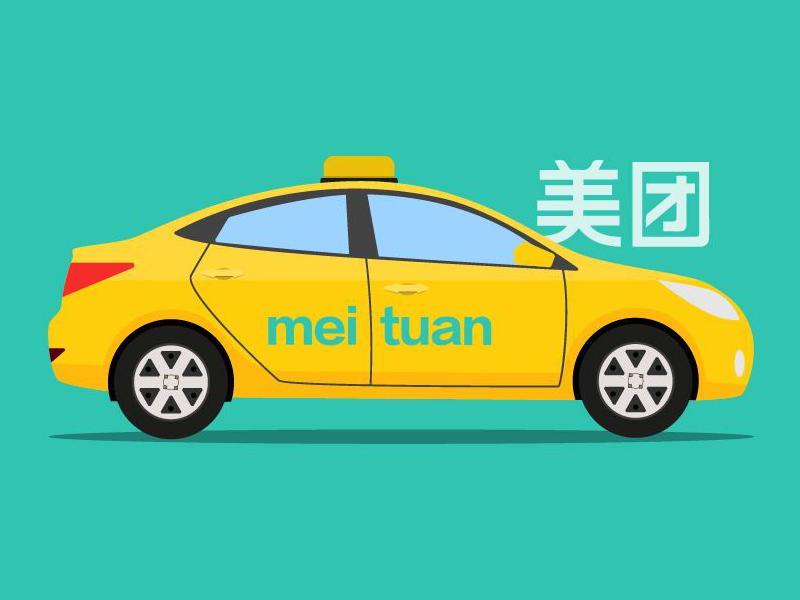By LENA ZHANG
China’s biggest online to offline (O2O) service provider, Meituan-Dianping, is tapping into the ride-hailing sector. It has attracted 200,000 users in Beijing for its new ride-hailing service, which is yet to be opened. Apart from Beijing, Meituan-Dianping started to register users in other cities including Shanghai, Chengdu, Hangzhou, Wenzhou, Fuzhou and Xiamen. Its nationwide expansion indicates that it will take on prominent market leader, Didi Chuxing, China’s largest ride-hailing app operator with estimated 450 million users.
Heavy subsidies to attract drivers and passengers
Bonuses for users matter a lot, which was once a key strategy to Didi Chuxing’s success. To attract drivers to sign up to its platform, Meituan-Dianping launched a policy declaring that the first 50,000 drivers to sign up will be exempt from a commission cut, while its competitor Didi Chuxing takes a 20% cut from drivers. Drivers complain that the commission fee charged by Didi Chuxing is very high, therefore a new ride-hailing platform is welcomed by drivers.
Before the recruitment of users, Meituan-Dianping had begun to test the service in Nanjing 10 months ago. Its daily orders have exceeded 100,000 and the operation team has reached 200 people. Passengers in Nanjing are willing to use Meituan-Dianping due to its continuous vouchers for users. It is estimated that the subsidy for each order is equal to RMB 20 (USD 3.11) and costs USD 310,000 in total every day.
Meituan-Dianping’s strategy of subsidising reminds us of Uber’s entry into China. Uber entered China in August, 2014 and invested subsidies of USD 2 billion in China, however this caused deception in relation to subsidies among drivers. Uber China merged with Didi Chuxing in August 2016.
Will Meituan-Dianping follow a similar path to Uber China? Chen Shaoli, Meituan-Dianping’s Senior Vice-President of corporate development, claimed that Meituan-Dianping will not rely much on user subsidies and therefore will not go down Uber’s path.
Ride-hailing is part of O2O service loop
What made Meituan-Dianping enter the ride-sharing sector? Wang Xing, founder and CEO of Meituan-Dianping, claimed that Meituan-Dianping would like to do business relating to O2O which stands for ‘offline to online’ and ride-hailing services. According to an internal email at the end of last year, Wang said that the company would upgrade its platform in four aspects: when users are in a store, at home, in a car, or travelling.

As a pioneer of O2O, Meituan-Dianping provides various services including food delivery and hotel bookings. The great number of users and their demands for transportation services give Meituan-Dianping an opportunity to enter the ride-hailing arena.
A manager working for Meituan Dache, its riding-sharing branch, told ThePaper.cn that 30% out of 250 million active users have been demanding transport services. The entry into the riding-sharing sector will help Meituan-Dianping to improve its service functions and to be an integrated platform.
Apart from users’ needs, another underlying cause that drove Meituan-Dianping to enter the new sector is that ride-hailing services will help to increase Meituan-Dianping’s valuation. At present, Meituan-Dianping has become the world’s fourth-most valuable startup, reaching a USD 30 billion valuation. However, the valuation for Meituan-Dianping doesn’t satisfy its CEO, Wang’s, estimate of USD 100 billion. The new business of ride-sharing services offers a big piece of the pie, and its valuation may exceed the entire scale of Meituan-Dianping’s other businesses including food delivery, hotel bookings, travelling, movies and so on. Therefore, the entry to the ride-sharing business will help to improve Meituan-Dianping’s valuation significantly.
Blurred boundaries
The boundaries between different industries has been blurring. While Meituan-Dianping planned to enter Didi Chuxing’s ride-hailing market, Didi Chuxing invested in Ele.me, a leading food delivery startup in China, to do food delivery. This is not a new business model. The combination of food delivery and ride-hailing has been done successfully by Uber Eats.
That Meituan-Dianping and Didi Chuxing enter their main competitors’ market is not by accident. Apart from the dominance of Baidu, Alibaba and Tencent which are called ‘BAT’, Toutiao, Meituan-Dianping and ride-sharing giant, Didi Chuxing, have been known as ‘TMD’. Obviously, Meituan-Dianping and Didi Chuxing see each other as the most important competitor.
Will Meituan-Dianping succeed? In fact, Meituan-Dianping did not launch its platform in Beijing by Jan 12 as it had planned, because it was assumed that Meituan-Dianping hadn’t received legal qualification from the administration. However, in the area of ride-hailing, Meituan-Dianping still has opportunities to achieve its market share through its efforts.
Firstly, the ride-sharing market is so huge that one giant, Didi Chuxing, cannot satisfy all the market needs. The rapid growth of users registration on Meituan Dache demonstrates this.
Secondly, Meituan-Dianping has a large user base and its integrated platform to provide various types of services is easy to use for users. Statistics show that the overlap ratio of drivers using Didi Chuxing and Meituan Dache is 19.46% in Nanjing, which means 19.46% Didi Chuxing Users use Meituan Dache at the same time.
On the other hand, the challenge that Meituan-Dianping needs to face is the stable dominance of Didi Chuxing in this market, in which bike-sharing startups have grabbed part of the market share. In fact, the era of rapid growth of the ride-hailing sector has passed. In addition, Didi Chuxing’s technological advancement cannot be ignored. Didi Chuxing has been well-known for its technological advancement which includes transportation predictions, big data and so on. That’s what Meituan-Dianping’s coupons cannot resolve in the short term.















